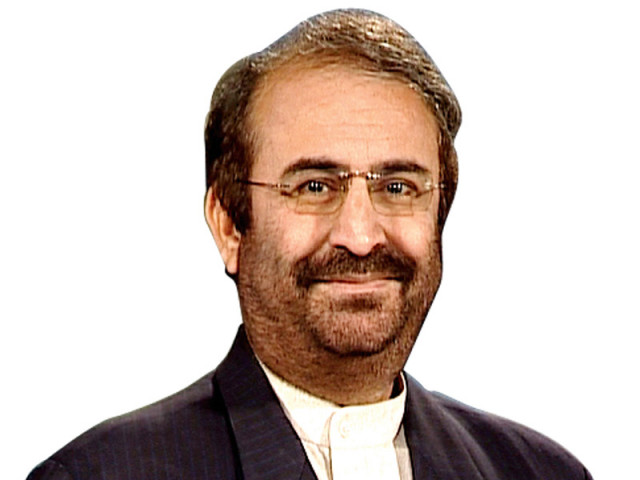Afghan polls: Warlords, rights abusers join the race
Observers, civil society members call for rejection of their nomination papers.

Observers, civil society members call for rejection of their nomination papers.
Afghanistan has lately been plagued by worries over decisions made by warlords, human rights abusers and corrupt elements to make their way into the presidential elections scheduled for April 2014.
Among the list of candidates running for various government offices are numerous warlords, senior politicians and officials of security forces who have committed grave human rights abuses during various armed conflicts that have arisen in Afghanistan over the past three decades.
International human rights groups, local civil society along with a section of the media and lawmakers are calling upon Afghan election authorities to reject nomination papers of those involved in killing of thousands of people.
According to officials of the Election Complaints Commission, a dozen applications have been received in the course of just a few days regarding presidential candidates and the provincial council. The commission said it would assess the complaints in a week and if any serious case is proved against any candidate, their nomination would probably be rejected.
However, many Afghans believe the Independent Election Commission would not be able to challenge the powerful warlords as they have been at the helm of affairs since the fall of the Taliban regime in 2001.
In 2007, the Afghan parliament approved a controversial amnesty law floated by a group of powerful warlords and their supporters to thwart prosecution of individuals implicated in human rights abuses in preceding decades.
The law stipulated “all those who took part in armed conflicts before the invasion of Afghanistan in December 2001 shall enjoy all their legal rights and shall not be prosecuted.”
The law still exists and it is believed the candidates will now take political mileage from it.
General Abdul Rashid Dostam, an Uzbek warlord, is contesting for the vice president office with the team of Dr Ashraf Ghani Ahmadzai, former finance minister and head of the security transition. Dostam is the most controversial figure in Afghanistan for the past three decades and is accused of having a hand in killing thousands of people.
Incidentally, Ahmadzai had called Dostam a ‘murderer’ in an article published in The London Times in 2009. Ahmadzai had also criticised President Hamid Karzai for including Dostam in his government.
The Uzbek warlord had then apologised to the Afghan nation shortly after he appeared before the election commission to register his name. His apology was rejected as a ‘political trick’ by Afghans who questioned why the warlord held his apology for nearly 12 years while he was enjoying several top positions with President Karzai.
The West had also ignored abuses by the warlords as they had backed the US-led invasion to dislodge the Taliban. Pursuing the US policy, former American ambassador to Afghanistan Zalmay Khalilzad also came up with a shocking statement in support of Dostam, describing his apology as a praiseworthy initiative.
Afghan observers question the logic behind Dostam’s late apology just months ahead of the elections. Political analyst Ghafoor Ahmad Jawid in a television debate said, “It is more of a political trick and part of the election campaign rather than a sincere apology.”
Former Afghan President Sibghatullah Mojaddedi was also quoted expressing concerns about the presence of some human rights violators among the election candidates. He also described Dostam’s apology insufficient.
Moreover, various foreign donors are being approached to pressurise the Afghan government to ensure the elections are not contested by human rights violators.
This week, Human Rights Watch (HRW) said candidates for the 2014 presidential elections include former military and militia commanders implicated in serious human rights abuses, war crimes and crimes against humanity.
The Afghan government’s failure to prosecute or disqualify such officials underscores the importance of accountability in Afghanistan’s future. According to the HRW, the Afghan government has systematically blocked inquiries and efforts aimed at accountability for abuses committed in the past.
Afghanistan’s constitution bars any individuals convicted by the court of crimes against humanity, for a criminal act or deprivation of civil rights from running for elected office. Unfortunately, the Afghan government’s failure to pursue criminal accountability against those responsible for heinous crimes has rendered the provision ineffective.
Published in The Express Tribune, October 12th, 2013.


















COMMENTS
Comments are moderated and generally will be posted if they are on-topic and not abusive.
For more information, please see our Comments FAQ